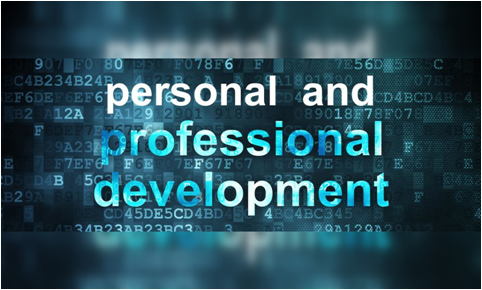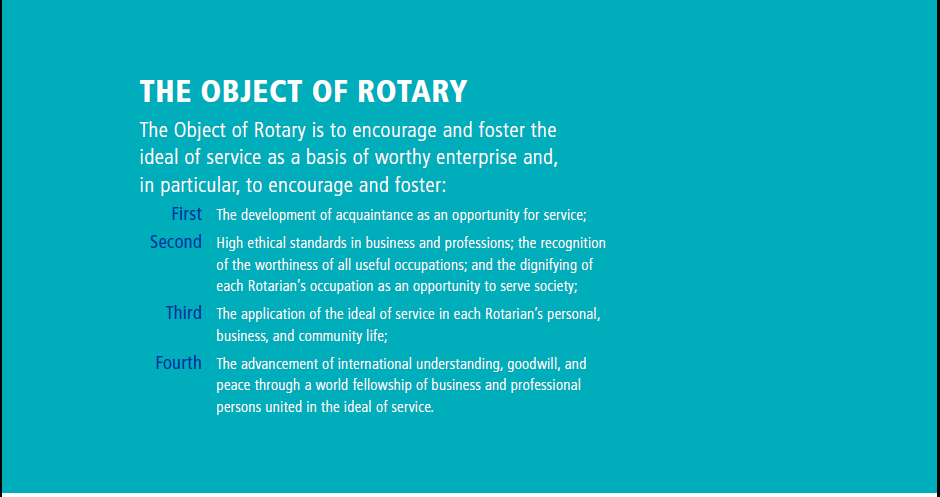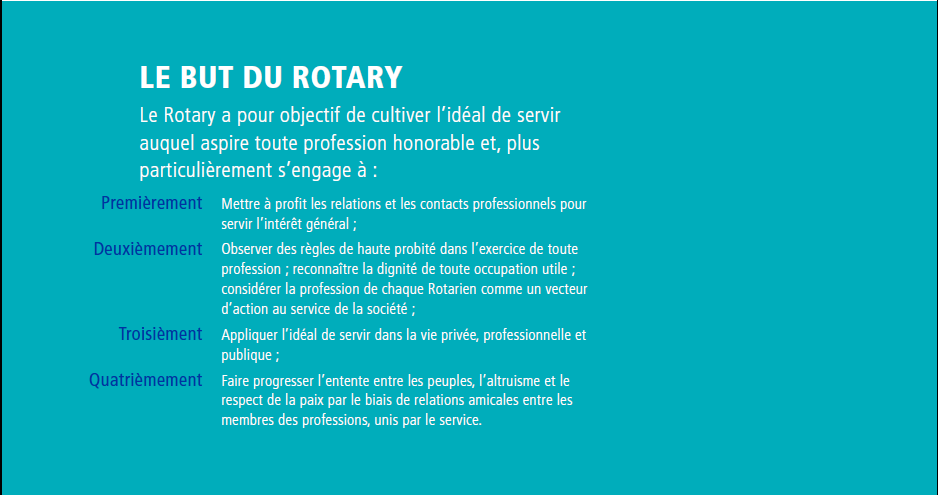
Within the Rotary family, when we talk about membership drivers – both for joining and staying in a club - we often and typically focus on the two heavy hitters: Service and Friendship/Fellowship.
However, we sometimes forget that at the heart of Rotary there is a very powerful tool for growing Rotary: Professional and Personal Development.
SOME FOUNDATIONAL ELEMENTS
Let's start by first recalling the Object of Rotary:



Next, let's take a look at Rotary Avenues of Service:

What we can derive is that the Object of Rotary is a philosophical statement of Rotary’s purpose and the responsibilities of Rotarians.
Additionally, of the five Avenues of Service, the concept of Vocational Service is rooted in the Second Object, which calls on Rotarians to “encourage and foster”:
- High ethical standards in business and professions
- The recognition of the worthiness of all useful occupations
- The dignifying of each Rotarian’s occupation as an opportunity to serve society
Vocational Service is therefore the way Rotary fosters and supports the application of the Ideal of Service in the pursuit of all vocations.
Vocational Service is both the responsibility of a club and of its members.
That of a club is to implement and encourage the objective by frequent demonstration, by application of its own actions, by example and by development of projects that help members contribute their vocational talents.
That of members is to conduct themselves, their business and their professions in accordance with Rotary principles and to respond to projects which the Club has developed.
As a Rotarian, how can you put these ideals into action?
Consider these initial suggestions:
- Talk about your vocation in your club, and take time to learn about fellow members’ vocations.
- Use your professional skills to serve your club and your community.
- Practice your profession with integrity, and inspire others to behave ethically through your own words and actions.
- Help a young person achieve his or her career aspirations.
- Guide and encourage others in their professional development.
If you do any of these things, you are performing vocational service. And if vocational service motivates and energizes you, then you’re in the right place, because vocational service is the very essence of Rotary. It is what sets Rotary apart from other service organizations.
Vocational Service calls on us to empower others by using our unique skills and expertise to address community needs and help others discover new professional opportunities and interests.
For more information on Vocational Service, see the attached guides.
PROFESSIONAL AND PERSONAL DEVELOPMENT
Based on the tenants of Vocational Service and the Object of Rotary, it is a natural course of action and focus for clubs and members to provide opportunity and resources for professional and personal development among current and potential members.
Based on results from surveys conducted by Rotary, professional and personal development is the third most important reason people join Rotary
- 25% of people worldwide joined because of it.
This percentage is even higher when we look at the motivations for younger people to join Rotary
- Close to 30% of members under 50 worldwide said they joined for professional and personal growth.
This is also coupled with the fact that when we asked Rotarians in the last member census what areas they felt strongly about
- 65% of Rotarians worldwide identified their careers and
- for members under 50 worldwide, that rose to a whopping 80%.
There are many opportunities in the Rotary experience for members to develop both professionally and personally.
When we take on a club role, give a speech at our club or get involved in a project we are learning experientially to be leaders, better communicators, and change makers in our community.
Vocational training and development are embedded in both the Object of Rotary and in the 5 Avenues of Service...so, as members of the Rotary family, we should already be committed to advancing our professional skills and guiding and training others.
In doing so, our clubs would undoubtedly gain recognition as active conduits for persons seeking such development and thus provide even greater attractiveness and justification for new member candidates.
Here are some ideas for using professional and personal development as a membership tool:
- Encourage members to take on leadership roles, join committees, work on projects, be a guest speaker at a meeting
- Create a mentoring program (either internally or externally) using a member skills inventory as a basis
- Host business networking and professional development events
- Create a Professional Development Chair or committee
- Encourage opportunities for getting involved in the bigger Rotary family: Rotary Action groups, Rotary Fellowships, Vocational Training Teams (VTTs)
- Promote the wide range of personal and professional development courses (outside of Rotary courses) available on the Learning Centre – including conflict resolution, public speaking, adult training, leadership basics.
Your club's Vocation Service team can also take an active role with some of the following actvities:
- Promote members networking with associates to help serve others.
- Strengthen the emphasis on vocation (and classification) in new member recruitment and induction.
- Identify means of emphasizing vocation in club activities.
- Create a stronger emphasis on business networking with integrity in Rotary.
- Focus more attention on business networking with integrity as a means of attracting and mentoring the new generation.
- Emphasize the connection between the Four Way Test and the Rotary Code of Conduct (formerly called: Declaration of Rotarians in Business and Professions) and their importance to the values of Rotary.
- Devote the first meeting in October and/or January to examining the second Avenue of Service, including The Four-Way Test and the Rotary Code of Conduct. After expanding members’ awareness, solicit their input in planning projects for the remainder of the year.
- Introduce a “mini-classifications talk” series in which each member gives a five-minute talk on his or her vocation. Schedule one speaker for the beginning of each meeting until everyone has made a presentation. The purpose of these talks is to promote vocational awareness among Rotarians and help them recognize the worthiness of all useful occupations.
- Present a vocational award to someone in the community who has exemplified outstanding professional achievement while maintaining very high ethical standards. Promote the presentation within the community, and consider making it an annual event.
- Invite experts to give a presentation on the vocational needs of the community and develop a project in response to those needs. Possible projects could focus on developing character, providing career information to youth, mentoring small businesses, or organizing workshops that provide employees with new skills.
- Encourage club members to put their vocational skills to work as a Rotary Volunteer with other organizations and causes.
- Conduct any other activities associated with the effective operation of the club.
For additional resources and assistance, check out a list of professional and personal development resources here.
- Rotary Learning Center
- Rotary Action Groups
- Rotary Fellowships
- Introducing New Members to Rotary: An Orientation Guide